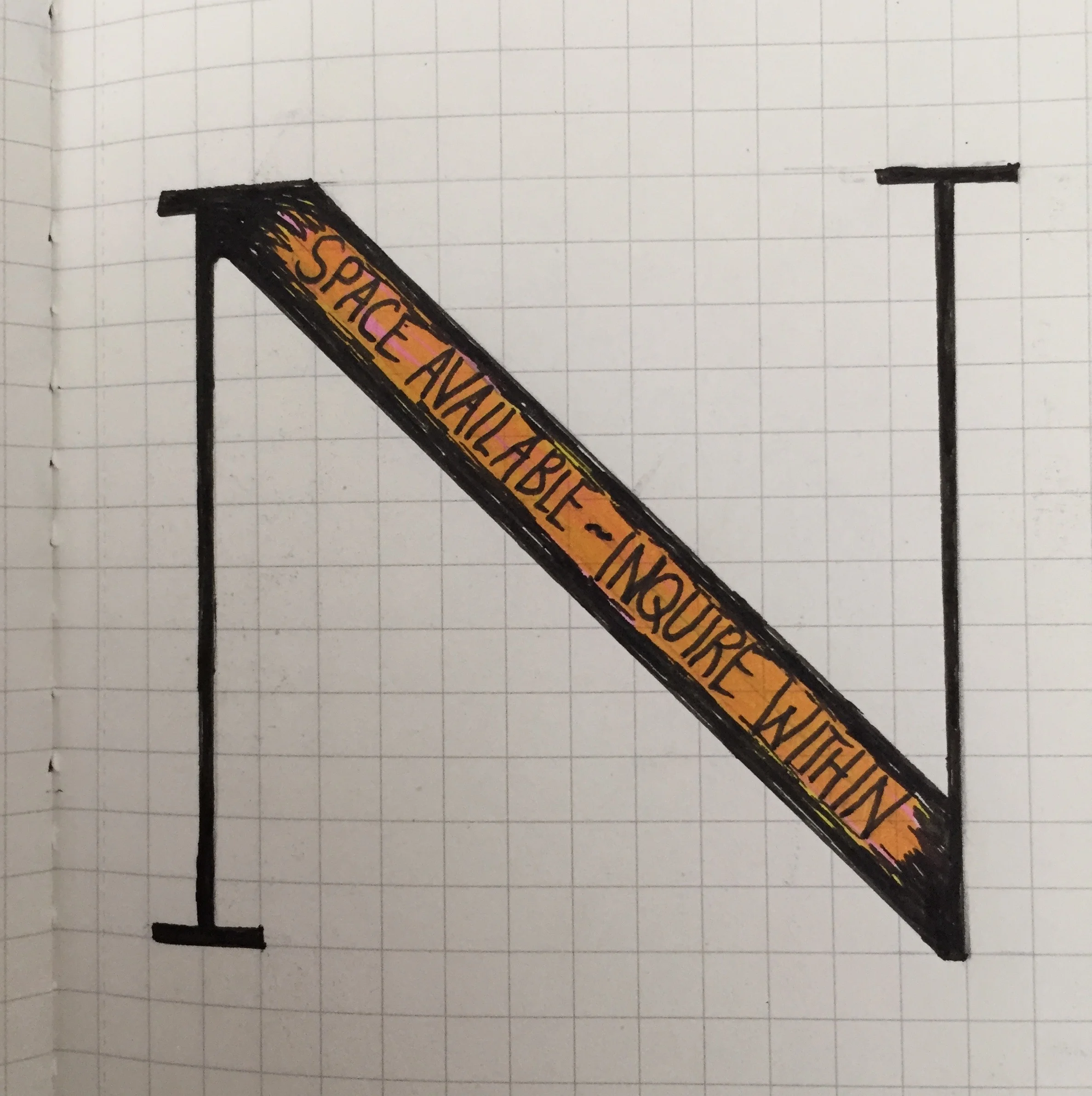Or, What We Don't Talk About When We Talk About Loving A Narcissist
We talk about narcissism a lot these days. But we’re doing it all wrong.
As a psychoanalyst, I love to see the psyche getting mainstream attention. However, judging by the discourse around narcissism in various public forums, the way we talk about it is one-sided at best, and the discourse often quickly veers into self-righteous witchhunting territory, leaving no room for actual thinking or insight. The way we talk about our painful relationships with narcissistic people tends to omit the most important part: how did we get ourselves into these awful relationships in the first place?
Labels Alone Don’t Help
For instance, the other day I came across an article in the NY Times called “Divorcing A Narcissist.” This writer does a great job elaborating on the suffering that the spouses of pathologically narcissistic people go through, but she ultimately repeats the same mistake I see all the time: she presents the narcissist as a villain with a weird disorder that you couldn’t possibly relate to. Granted, the author who’s being profiled is clearly empathic in her understanding of the experience of someone who’s in a painful relationship with an essentially narcissistic person, and this empathy itself can be valuable and therapeutic, particularly for the short-term lessening of acute emotional pain. While I am not only empathic but also personally sympathetic to the difficulties of being in a painful relationship with a narcissistic partner, I believe no insight, change, or healing is possible without exploring the one question that no one seems to ask of the heartbroken love partner: so just how did you end up marrying/committing to/falling in love with this [dastardly!] narcissist in the first place?
If you’re recovering from a breakup with a pathologically narcissistic partner, the key to your healing is not the unmasking of the emotionally abusive partner as a “narcissist,” followed by a vow never to do that again. In the long term, the labels just aren’t enough. But that’s where the discourse tends to stop: you were involved with a narcissist; now that you know about this new label, you’ll be fine moving forward.
However, from where I’m sitting, if you come out of therapy with a label and a bunch of traits to look out for, you’re likely to be seeking another course of treatment in the near future. If that’s all you’ve got to go on, you’re very likely to find your way into another uncannily and nighmarishly similar relationship.
So, how did you end up in a committed relationship with this now-unmasked narcissist in the first place? The short answer: Narcissists don’t have an exclusive contract on narcissism. We’ve all got some narcissism in us. Something in that dastardly partner of yours scratched a certain narcissistic itch in you. And that itch is part of what connected you to this person who ended up wrecking your heart and mind just a little ways down the road.
Longer version: it’s useless to describe the problems in a two-person relationship in terms of one person’s pathology. Responsibility almost never falls on just one of the people involved in an intimate relationship. Note that I’m not talking about blame; I’m talking about responsibility. Labeling the other partner as the “narcissist,” while perhaps diagnostically true, generally functions in the real world as a blaming mechanism. We often distance ourselves from certain feelings and urges by locating all these terrifying feelings in other people who display them most notoriously. We apply labels to these notorious offenders, and we feel satisfied that those bad feelings and urges are located over there, not over here.
When you do that, you’re fooling yourself. Narcissism isn’t just this thing that some people have over there, far away from you. It’s in you. It’s in all of us. It’s a bit like The Force; it’s all around us, everywhere, all the time, and it’s part of what holds our social universe together. Your narcissism plays an integral role in motivating you to put on two matching shoes most of the time, leave more-or-less on time for work, and love the “likes” you get on your Facebook posts.
The Beginning of the End
Now let’s go back in time, back to when you first started dating that no-good such-and-such. The first three or four months were good, I bet. Really, really good. Maybe the best trimester of your life. There was charming banter. Delicious meals. Passionate sex. In retrospect, maybe it was even too good. You felt attractive in a way that you’d always hope you’d feel. And then, all of a sudden, this person who was just heaping praise on you a second ago now thinks you’re horrible.
So that first trimester, full of flowers in bloom and day-long orgasms, that’s where the action is, for you. That’s what you need to take a hard look at, because that’s the part of yourself that got you into this mess. During that honeymoon phase, your partner— let’s call him/her “N” — was scratching a certain itch that you never knew you had. Or never admitted to yourself you had. And maybe you have trouble admitting it now. Somehow, N made you feel so desirable, so attractive, so intelligent, so witty. It made you feel the way you’re supposed to feel in a relationship, or so you thought.
Well here’s the thing: you thought wrong. The kind of relating you experienced during the honeymoon phase with N was probably a narcissistic fusion — something to which we are all vulnerable. This fusion is very likely related to a memory/fantasy of indivisible oneness rooted in early experiences/fantasies of parental love, which we hoped was unconditional.
This is something we have all either experienced or fantasized about, and herein lies the problem with the traditional name/blame game that goes on when talking about narcissism. A desperate need for unconditional love and acceptance is part of what motivated N to judge you so harshly when you didn’t measure up. And that desperate need is not just over there, in N. It’s in everyone. We all needed that itch scratched when we were little babies, and the painful part is that it was either scratched back then, or it wasn’t. What we do with that need as adults determines the shape of our emotional lives.
In the traditional mainstream narrative about narcissism, N has this bad thing inside that you don’t have. That’s nonsense. You got into this mess with N because the narcissistic aspect of your personality — the part that loves the “likes” on Facebook — found a [temporary] home in a fantasy of oneness that you shared with N. Unfortunately, after a while it turned out that N’s entire life was oriented towards a fantasied perfection that no one could ever live up to, yourself included. Once you started falling short of the perfection that N was seeking, N’s self-esteem couldn’t tolerate the ways in which you fell short. And the sense of being deceived by a bait-and-switch artist often drives us to characterize pathologically narcissistic people as demonic psychopaths — which they’re usually not. They’re often much more vulnerable than they are sadistic or psychopathic.
People like N are dominated by narcissistic fears and are preoccupied with protecting their image in other people’s eyes. They organize their lives and all their relationships around these fears, and they can’t really connect to other people in the ways that you strive to connect. But if you look into yourself, there’s a part of you that’s not so different from N. You just manage it differently.
Does That Mean You’re A Narcissist?
If you fall in love with a series of narcissists, no, you are not necessarily a narcissist. However, there are probably some parts of yourself that need exploring, and the consultation room of a psychoanalyst is a good place to elaborate on the needs that led you to those toxic partners in the first place. When we choose to ignore the internal forces we don’t want to know about, they tend to show up in our relationships, usually in uncomfortable and embarrassing ways. On the topic of keeping secrets from ourselves, Sigmund Freud once wrote, “If his lips are silent, he chatters with his fingertips; betrayal oozes out of him at every pore.”
Our relationships reflect needs and vulnerabilities that have deep roots in our personal histories, and when we remain ignorant of our own histories, we are doomed to repeat them.

